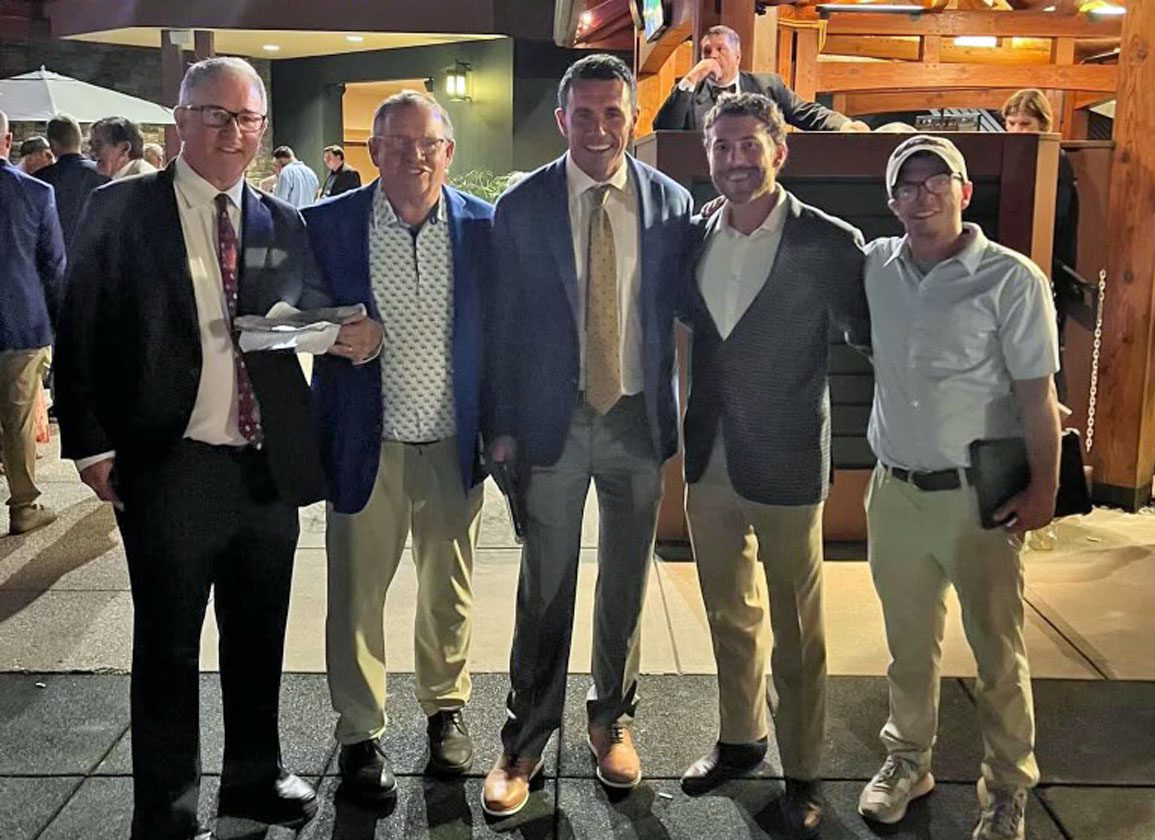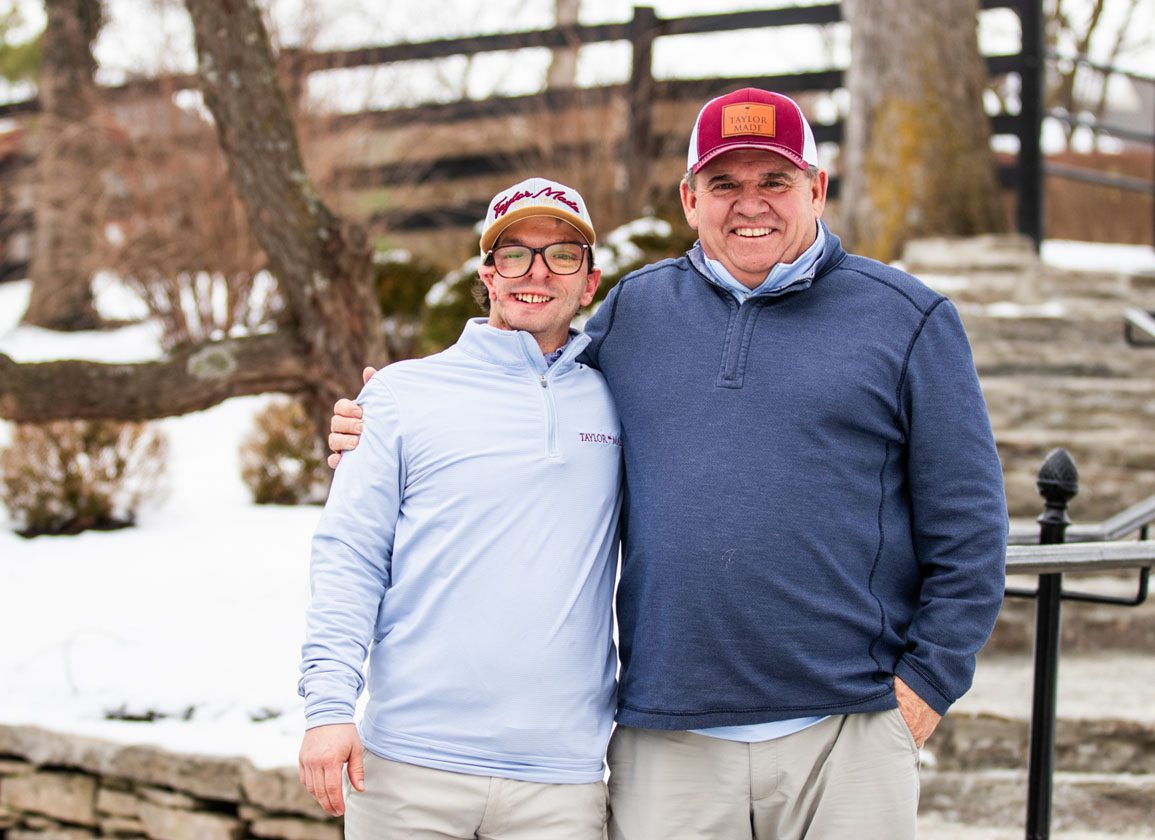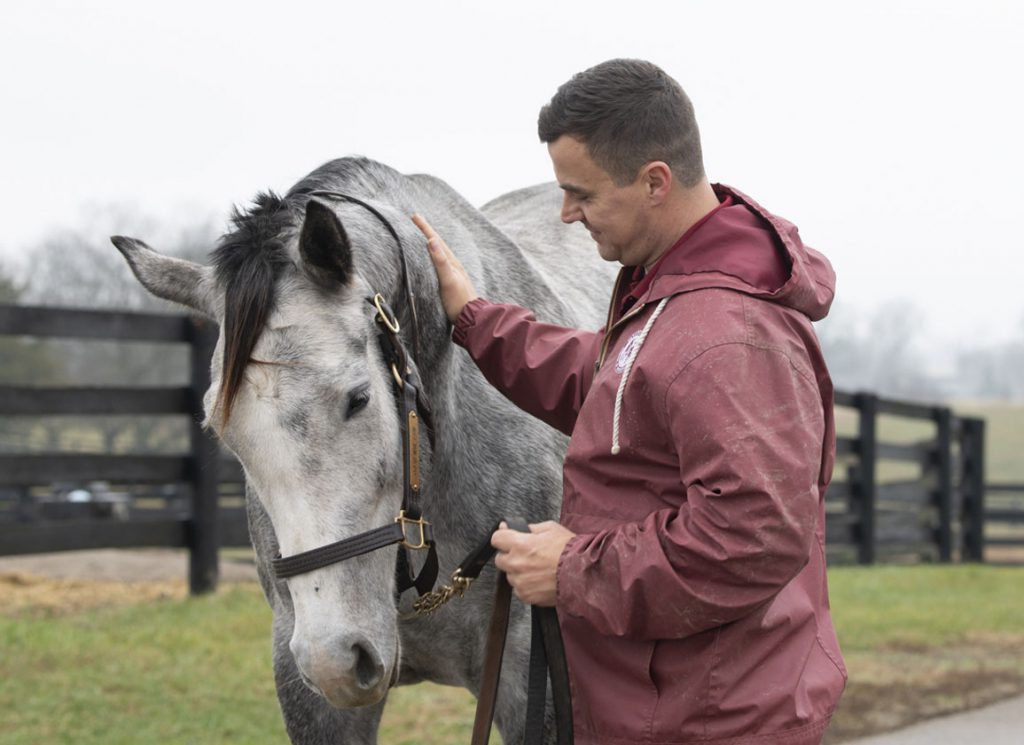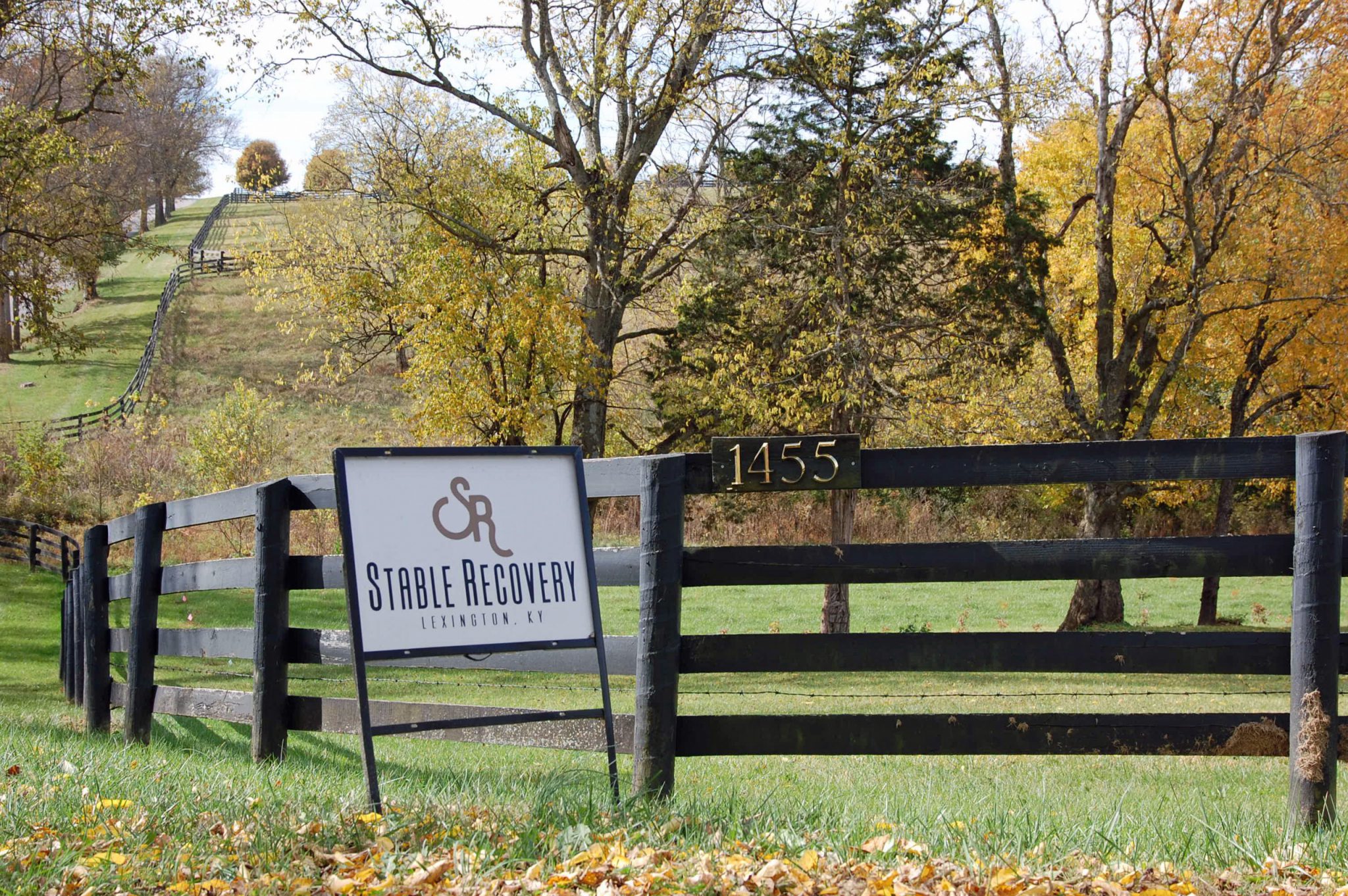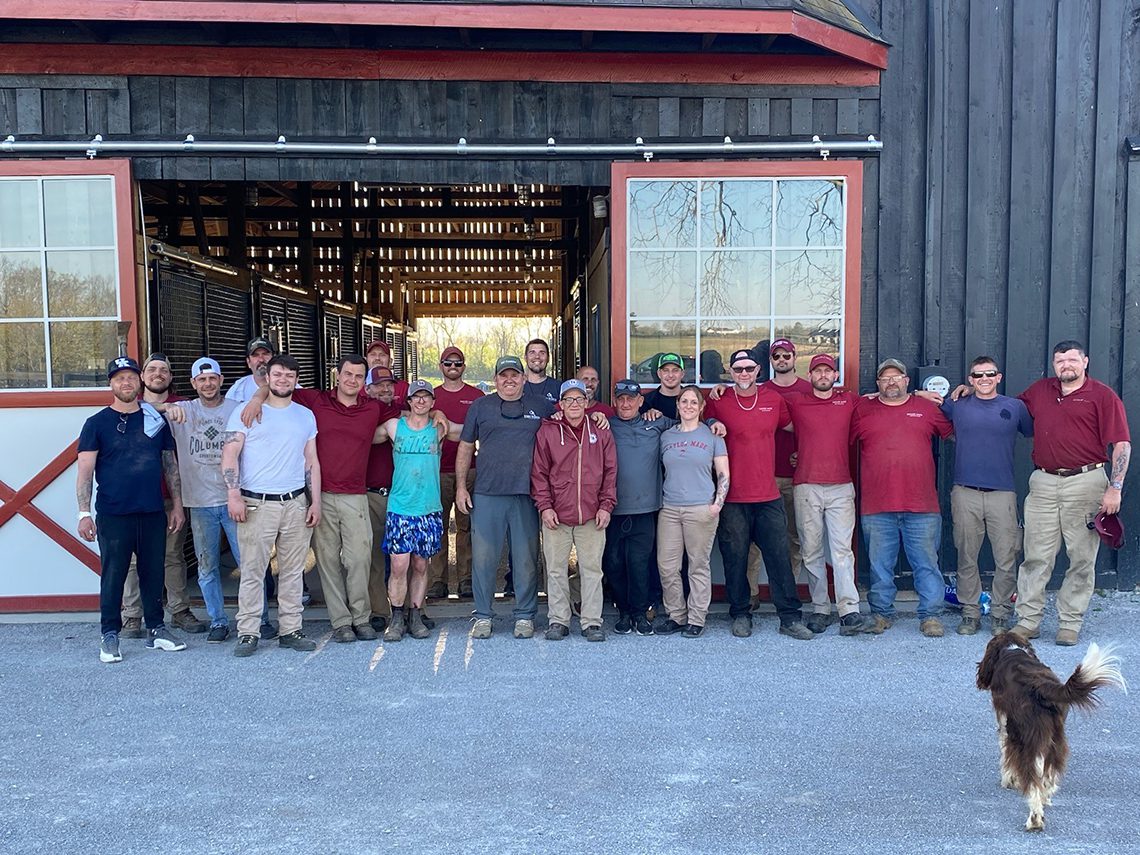Stable Recovery is a rehabilitation program in Lexington, Kentucky that provides a safe living environment and a peer-driven, therapeutic community for men in the early stages of recovery from drug and alcohol addiction. Along with going to 12-step meetings and support groups, residents attend the School of Horsemanship at Taylor Made Farm to learn a new vocation in the Thoroughbred industry. The School of Horsemanship is a project that was created by Taylor Made two years ago and has since seen over 100 men go through the program. Many of those graduates have gone on to pursue a career in an equine-related field. Spy Coast Farm, Brook Ledge, Hallway Feeds, Will Walden Racing, Rood & Riddle, WinStar Farm and Godolphin have recently partnered with Stable Recovery as the program looks to expand its reach throughout Lexington.
In this month's installment of TDN's series, 'The Road Back,' we introduce you to Josh Bryan, the former program coordinator for the School of Horsemanship who now serves as assistant to Frank Taylor, the Director of New Business Development at Taylor Made Farm.
If you've ever been to a sale and had a chance to speak with Josh Bryan, you already know that he is a breath of fresh air. During those busy days when most everyone has their nose buried in a catalogue, barely having the time to look up and give a quick nod as you pass each other between barns, Bryan's easy smile as he looks you in the eye and asks about how you've been is a welcomed reprieve from the normal routine.
The sales are Bryan's happy place. He loves the energy, the wheeling and dealing, celebrating when a client's horse goes for a good amount of money. He has a passion for the horses, yes, but what he really enjoys is meeting new people, making someone's day better and carrying out his life's mission of helping others however he can.
Josh Bryan has had a hard life.
He was born with Goldenhar syndrome, a rare congenital defect that affects the development of the ear, nose, soft palate, lip and mandible usually on one side of the body. He had his first corrective surgery when he was just seven weeks old and now, at the age of 31, the count is up to 14.
Growing up in Frankfort, Kentucky, Bryan was constantly going in and out of doctors' offices. His parents didn't want him to get hurt so he rarely got to play sports. He never partied until college, when his life took the worst of turns.
During his freshman year at Western Kentucky University, Bryan's father passed away from leukemia. Two years later, his mother was battling health issues that turned out to be a fatal brain aneurysm.
With both his parents suddenly taken from him, Bryan turned to alcohol to numb the loss.
“I didn't really feel like I had much to live for after that, which looking back now is total nonsense,” Bryan recalled. “It was a lot of depression and really no sense of purpose. I felt like life really wasn't really worth living anymore.”
Eventually addiction overcame any motivation he had to finish college and he flunked out. He returned home, hoping to get a job with the family business.
Bryan is second cousins to the Taylor brothers. Like almost everyone in the Taylor family, Bryan had spent a few summers as a teenager doing yearling prep. He worked off and on at Taylor Made after his return to Central Kentucky, but his addiction kept him from holding down a consistent job.
One day as he was driving down East Hickman road on the way to the farm, his car broke down. It was cold, and rainy, and he finally hit rock bottom.
“I felt like my life was coming to an end,” Bryan said. “It was either go on like I was until something tragic happened and I lost my life or make a decision to get some help. I kind of cried out to the universe that I had to get out of here. I had this sense of hope that there was more of a purpose for me than continuing on this dark path that was going to lead to me dying or going to jail or killing someone else.”
With the help of Frank Taylor, Bryan got into the Shepherd's House, a residential drug addiction treatment center, in August of 2020. He soon landed a job at Rood and Riddle and worked there as a surgery technician for eight months.
One day he got a call from Taylor, who had an idea to start a project that would teach men going through recovery from addiction a new vocation in the Thoroughbred industry. He wanted Bryan to be the program coordinator.
Together, Taylor and Bryan built the School of Horsemanship and eventually, with the help of Christian Countzler, they launched Stable Recovery, which allows all the participants in the School of Horsemanship to live in one place and go through meetings and support groups together during their time in the program.
As the program coordinator, Bryan taught members of the School of Horsemanship everything they needed to know about the daily care of the horses at Taylor Made.
“These people have never touched a horse and they're kind of timid at first, but once you are with them for a week or two, you see that light bulb come on and you see the passion that I had when I first started,” he described. “It's very heartwarming to me.”
Like many graduates of the School of Horsemanship have already attested, Bryan said he knows there is something about horses that has a positive impact on people going through recovery.
“I think horses have a really good sense of your feelings emotionally,” he explained. “If you go into a horse's stall nervous, they're going to be rambunctious. If you go into that stall angry, they're going to mess with you and make it worse. I remember some days before my recovery I'd go into the barn hungover with a bad attitude and they'd just eat me alive, bucking and trying to run me over. If you go in there with the right mindset and a clear head, they'll love you to death. If you're having a bad day and you go into a horse's stall and give it a big old hug, it just makes all the difference.”
Horses don't notice that Bryan may look a little bit different than the other humans that care for them. This fact helped Bryan as he was first navigating a leadership role at the School of Horsemanship.
“They don't care about if you went to jail or what you look like or where you came from,” he said. “For a long time I wasn't comfortable in my own skin and it took a lot of people and prayer and therapy for me to be okay with it. Sometimes I still don't see myself as a leader, but I've gotten more comfortable with it.”
While Bryan thrived in his role at the School of Horsemanship, recently he was ready for a change as he hoped to grow his knowledge of the sales side of the business. He stepped down as program coordinator, handing the reins over to Joshua Franks (profiled here), and began working directly under Frank Taylor, who also recently took on a new position as the Director of New Business Development at Taylor Made.
Taylor and Bryan work together almost every day, traveling to farms to look at horses and talk with clients. Bryan's eventual goal is to be a Thoroughbred advisor at Taylor Made and maybe, one day, a bloodstock agent all on his own.
As a kid who lost both his parents by the age of 20, Bryan had needed someone to fill a mentorship role in his life and Taylor stepped in to do just that. Now, as Bryan furthers his career in the Thoroughbred industry, he hopes to do right by his family–both the ones who are with him today and those who will always be in his heart.
“I've gotten to the point where I feel my parents spiritually and I'm trying to make them proud even though they're not here physically,” he said. “Frank has kind of been like a father figure ever since my parents passed away. He took me under his wing even when I was out there doing that craziness. He's been a tremendous rock in my life, no doubt.”
“Josh is basically one of my kids,” added Taylor. “We've always worked well together. It's kind of like we're best friends and I think I'm a mentor or father figure to him. I'm very proud of him. Once he quit drinking and got his life in order and spiritually strong, he's on a path to do great things. Big things.”
Because Taylor has fought through his own battle with alcoholism, he and Bryan share more than just a blood relation.
“I guess it's what they call trauma bonding,” Bryan explained. “A lot of not-so-good things have happened in our lives that have brought us together. It's kind of a thing where you have to live it to understand it. I think everybody could learn from what we like to call the Big Book, which is the Alcoholics Anonymous book. They teach you about all these life skills not only on how to help yourself but how to help others. It's really about treating people how you want to be treated and about being compassionate.”
Just last month, Bryan practiced what he preaches when he and Taylor took a trip to Jamaica through a partnership with The Mustard Seed, a foundation that works to help people in need–particularly those who suffer from mental and physical disorders in third-world countries. Among the many projects they took on during their time there, Bryan and Taylor helped renovate a house for the program and added in a new second floor.
“I eventually want to do more for people,” said Bryan. “You've got to have money to help, unfortunately, but that's why I love Frank. He does a lot for a lot of people and that's what I eventually want to do. I do what I can for now.”
All this coming from someone who was handed more than his fair share of hardship and loss, and yet Bryan doesn't really look at it that way.
“I think one thing I've really learned is that just because sometimes you might get dealt a bad hand, the world doesn't owe you anything,” he said. “You get to make the decision on whether you're going to find the strength within, whether you're going to let it harm you or if you're going to overcome it. In recovery we tell people all the time that you have to have the gift of desperation. In the end it's your choice. You can have all this support but at the end of the day it's your decision to change your life for the better.”
“The last three years in recovery have probably been the best three years of my life,” he continued. “I found that sense of purpose that I know a lot of people struggle with. I had lost that connection with God after my parents passed away and I think that has grown stronger every year. I think that was something I was lacking for a while–that trust that everything is going to work out the way it's supposed to. Now I just take my hands off it and trust that no matter what happens, it's going to work out. And it has.”
To learn more, or to donate to Stable Recovery, visit https://stablerecovery.net/ .
The post The Road Back: Josh Bryan Embraces a Second Chance to Find His Purpose appeared first on TDN | Thoroughbred Daily News | Horse Racing News, Results and Video | Thoroughbred Breeding and Auctions.
